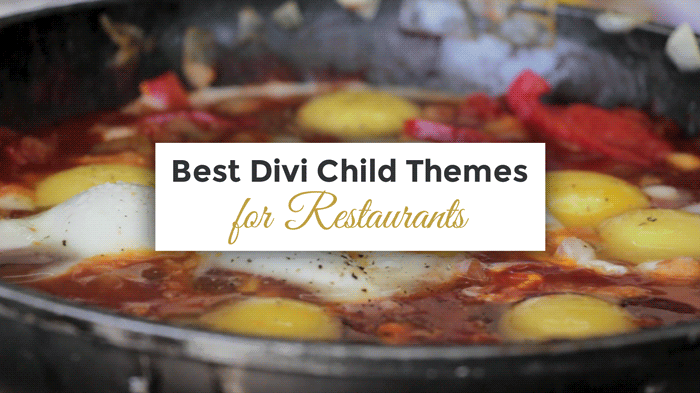35-Point Checklist To Write Fully Optimized Blog Content
Before hitting that publish button for your next blog entry, it is essential to ensure that your content is fully optimized. Use this checklist to write fully optimized blog content to ensure your post is SEO ready not only for search engine but for your readers and marketing strategies as well.
Ranking well in search engines like Google will drive more traffic to your site. Additionally, you’ll have long-term readers, which will eventually lead to paying customers. But don’t just sit back and wait for lady luck to come to you.
You have to take action today as there’s more to ranking in Google than just pure luck. There’s science behind it and strategies you need to understand to make things possible. Navigating your way to the top of search engine results is quite tricky. So use the following checklist to optimize your content fully before publishing it.
Create An Initial Headline For Your Post
Come up with a working headline for the blog post you have in mind before you start writing. Knowing the title beforehand will help you focus on the topic as you write and produce content that’s true to its header.
Know Who Your Audience Are
Identify who you’re writing the post for exactly. This way, you’ll feel more comfortable about being honest with your piece. Knowing who your target audience is allows you to customize your content to ensure it fits their interests and needs.
What’s Your Purpose?
Each part of your digital content should coincide with your marketing strategies. So identifying your marketing goals for your blog, such as enhancing SEO and building brand awareness, should be amongst your top priorities.
Specify A Main Keyword
Find the best primary keyword for your niche and post by using the Keyword Difficulty Tool of Alexa. A winning keyword should depict your topic accurately. Additionally, it should also be one of the top keywords for your niche. Ensure that it’s not only popular but has a keyword difficulty that can help you rank as well.
Include The Main Keyword In The Headline Of Your Blog Post
Go back to your initial working title and incorporate your main keyword to the headline.
Choose Some Related Keywords
Finding out the best secondary keywords to use in your content is also a part of a powerful writing checklist. Your post should include at least three to four LSI keywords related to its target main keyword.
Write A Minimum Of 300+ Words
Your blog post should contain 300 words or more so that search engines will see it as a well-thought-out resource. So to cover your topic fully, make sure to write as much as you can and need.
Add Value
Your post should present your audience with value. It should provide them with facts, details, news, stats, information, and takeaways that your readers will find relevant, useful, and helpful.
Do Not Just Tell, But Show
Utilizing examples that can help your target audience grasp and understand the message you want to convey is a vital part of your blog writing checklist.
Avoid Passive Voice Misuse
Your post will be more interesting if you’ll use active voice instead of passive voice. The latter usually makes blog posts dull and boring.
Write With An Eight-Grader In Mind
Aside from keeping the quality of your writing high, it should also be simple. Avoid using complicated terms and making the structure of your sentences complex so that you will not lose your readers.
Never Steal The Content Of Other Blogs
Do not copy from other websites and make sure to create original content all the time. Google will penalize you for plagiarizing blog posts.
Give Credit Where Credit Is Due
When using info or quotes in your content from other websites, give them appropriate citations. Link back to their site and list them as your source.
Do Not Forget To Use Multiple Subheadings
You can increase the readability of your content by splitting it up and breaking down sections of your text with the help of subheadings.
At Least One Of Your Subheadings Should Contain Your Primary Keyword
Your checklist for writing blog posts should include incorporating your main keyword into one of your subheadings.
Break Up Long Paragraphs
Your content should be easy to read and scan. You can do this by breaking up long paragraphs and big chunks of text by using plenty of white space and adding paragraphs.
Use Graphics For Support
You can make your blog post even more interesting and engaging by adding videos, images, social sharing options, and more.
Use The Right Image Size
You can also get better SEO results by optimizing your images. The loading time of your site will suffer if the file size of your photos is too large.
Your Image Alt Tag Should Have Your Primary Keyword
You can further improve the SEO of your blog site by inserting your main keyword in the image alt tag.
Add Your Main Keyword In Image File Titles And Names
Make sure to also incorporate your main keyword in the original filename of the images you’ll upload as well as its title in the CMS.
Beware Of Copyright Infringement On Images
Before using any digital media files such as videos and images, make sure you have permission to publish it. The last thing you want is to face copyright infringement problems. If you don’t have any good photos on file, check out our list of free stock photo sites where you can find a wide selection of amazing stock images you can use free of cost.
Your Page Title Should Include Your Main Keyword
Your writing checklist should also include coming up with a page title that has your main keyword in it. Avoid hurting your SEO efforts by using a unique page title so that you’ll be able to avoid problems with duplicate title tags. However, it’s fine to use your headline as your page title as well.
Include Your Target Keyword In Your Meta Description
It is also vital to include your primary keyword in your meta description, which should not exceed 320 characters.
Your First Paragraph Should Contain The Main Keyword
One of the best SEO practices is to include your main keyword in your web copy’s first paragraph. This will help tell those crawlers what your topic is all about immediately.
Add Your Target Keyword Before The End Of Your Copy
Use your main keyword near the end of your content to bookend your web copy with references to your target key phrase.
Use Your Primary Keyword In Your Copy In A Natural Way
Google doesn’t like keyword stuffing, so avoid it at all cost. Your keyword should go naturally in your blog post. Also, the keyword density in your content should be at 2%.
Use All Secondary Keywords At Least Once In The Entire Post
Have all your related keywords appear at least once within your web copy to support your main target keyword.
Add Relevant Internal Links
If you have pages or past posts relevant to your topic, link them to your current blog entry to give them new life. It’s also a great way to drive traffic to a post or page you want to promote.
Link To Other High-Quality Websites
Aside from internal links, it is also essential to add appropriate SEO-friendly, outbound links to other top webpages. It’s also a way to give them credit and have a link to resources.
Set All Outbound Links To Open In A New Window
Double-check every outbound link you have on your website. Make sure they’re all set to open in a new page to make your audience stay on your website. You don’t want them to leave when they click the link to another site.
End Your Post With A CTA
You always have a goal in mind when writing a good blog post, so ensure that it has a CTA or call-to-action button at the end. It’s a way to tell your readers what their next step should be.
Create Additional Headlines
Review your headline and write some more varieties to ensure you have a very strong, powerful title. List them down and choose which title you think is the best. Also, do not forget to make it compelling and concise while having your primary keyword in it. Keep in mind that your final blog title should not be longer than 60 characters long in search results.
Social Sharing Optimization
Make your blog posts shareable to encourage your visitors to spread your content by adding callouts and social sharing buttons or icons.
Double-Check And Edit Your Final Copy
Create an editing checklist of your own to ensure your copy is free from typos, grammar, and spelling mistakes. So make sure to perform a full edit before publishing your post.
Check Your On-Page SEO
Your job doesn’t stop once you’ve published your blog post. It is vital to use some of the best SEO tools to help it rank high on search engines and make it SEO-friendly.
Every post you publish should have a purpose. Also, make sure you have mapped out your marketing objectives in advance. This SEO content and writing checklist can help ensure you’ll never miss out on any vital steps. Apply it on your next blog post and share your thoughts by commenting below.
Aileen Cuaresma
Aileen is a Technical and Creative writer with an extensive knowledge of WordPress and Shopify. She works with companies on building their brand and optimizing their website. She also runs a local travel agency with her family. On her free time, she loves reading books, exploring the unknown, playing with her two adorable dogs, and listening to K-pop.
Use coupon code SLIDER15 at checkout!











Hi Aileen Cuaresma, very good post and very nice presentation. Really you have done the 35 tips.
Thank you…yup! most of these are little yet essential tweaks that we (including me) often overlook…
Very informative!
Glad you find it helpful Mansoor 🙂
Thank you for this post! Very detailed and helpful 🙂
You’re welcome Chloe! Thanks!
I think you’ve gave so much time writing this up but graphic artist messed it up. Your infographic contains same content in point 13 to 20. Give him/her a tight word. Thanks 🙂 Well wisher
It was me! 🙂 Sorry guys! It’s fixed.
Thanks for such a wide list!
You’re welcome thanks Fisioterapia Sevilla